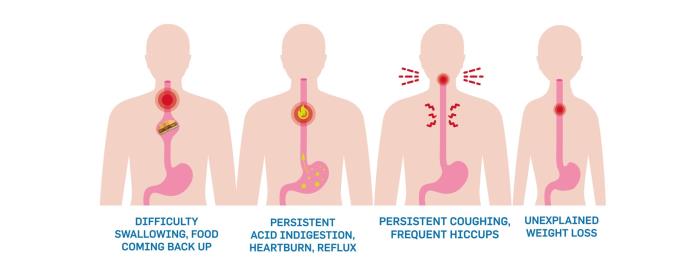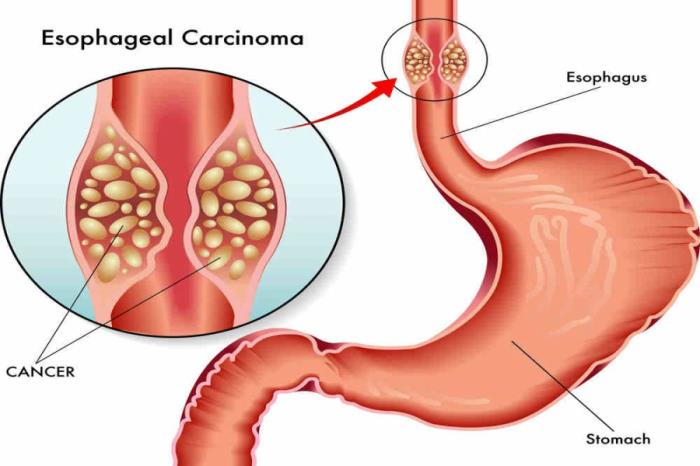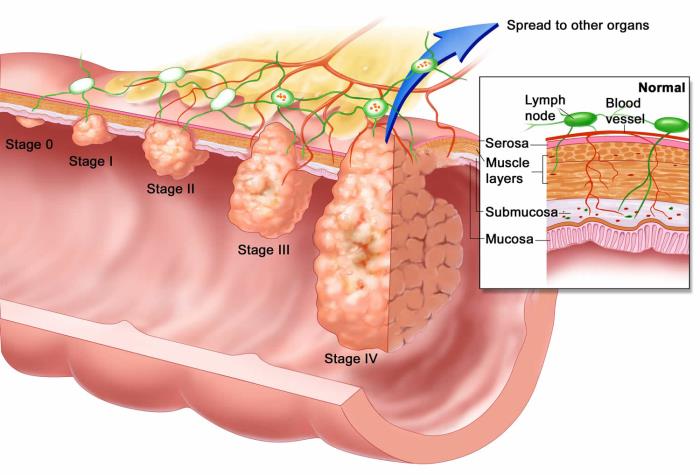Esophageal cancer treatment in India offers advanced care with costs typically starting from ₹3,00,000, depending on the stage and treatment type. Renowned hospitals across major cities provide access to skilled specialists and modern facilities. Success rates vary based on factors like early diagnosis and treatment approach, with many patients achieving favorable outcomes. India is a preferred destination for affordable, high-quality cancer care.
At a Glance: Key Takeaways About Esophageal Cancer Treatment
Esophageal cancer treatment in India offers a combination of affordability and advanced care. With costs significantly lower than in Western countries, patients can access cutting-edge therapies like surgery, radiation, and immunotherapy. Early diagnosis improves outcomes, while top hospitals provide multidisciplinary care.
- Choose surgery when the cancer is localized.
- Choose radiation for non-surgical candidates.
- Choose immunotherapy for advanced cases.
- Choose India for cost-effective, high-quality care.
- Choose early diagnosis for better survival rates.
Costs & Factors: Typical Ranges for Treatment in India
What Influences the Cost of Treatment?
The cost of esophageal cancer treatment in India depends on factors like the type of therapy, hospital location, and the stage of cancer. Advanced treatments like robotic surgery or immunotherapy may cost more than traditional options. Additionally, diagnostic tests, hospital stay duration, and post-treatment care can affect the overall expense.
Average Costs Across Top Hospitals
In India, the cost of esophageal cancer treatment typically ranges from ₹1,80,000–₹3,60,000 (≈ $2,150–$4,350 USD). This includes surgery, chemotherapy, or radiation therapy. Leading hospitals in metro cities may charge slightly higher, but they offer state-of-the-art facilities and experienced specialists.
Hidden Costs to Consider
Patients should account for hidden costs such as follow-up consultations, medications, and rehabilitation services. Travel and accommodation expenses for outstation patients can also add to the budget. Discussing these aspects with the hospital beforehand can help avoid unexpected financial burdens.
Explore a detailed breakdown of esophageal cancer treatment cost in India by visiting our in-depth guide esophageal cancer treatment cost in India.
How It Works: Steps & Workflow of Esophageal Cancer Treatment
Esophageal cancer treatment typically begins with a thorough diagnosis, including imaging tests and biopsies. Based on the stage, a treatment plan is devised, which may involve surgery, chemotherapy, radiation, or a combination. Early-stage cancers often require endoscopic procedures, while advanced cases may need multimodal therapies. Post-treatment follow-ups are crucial to monitor recovery and detect any recurrence.

- Step 1: Diagnosis and staging.
- Step 2: Treatment planning.
- Step 3: Therapy execution (surgery, radiation, etc.).
- Step 4: Post-treatment care and monitoring.
Benefits & Risks: What to Expect During Treatment
Key Benefits of Early Treatment
Early treatment of esophageal cancer significantly improves survival rates and quality of life. Localized cancers can often be treated with minimally invasive procedures, reducing recovery time. Early intervention also minimizes the risk of metastasis, allowing patients to resume normal activities sooner.
Risks Associated with Surgery and Therapy
While effective, esophageal cancer treatments carry risks such as infection, bleeding, or complications from anesthesia during surgery. Radiation therapy may cause side effects like fatigue or difficulty swallowing. Advanced therapies like immunotherapy can lead to immune-related adverse events, which require careful management by specialists.
Timeline & Aftercare: First 4–12 Weeks Post-Treatment
Recovery after esophageal cancer treatment varies depending on the type of therapy received. In the first 4–12 weeks, patients may experience fatigue, difficulty swallowing, or mild discomfort. A gradual return to normal activities is encouraged, but rest is equally important to aid healing.

Dietary adjustments are crucial during this period. Soft or liquid diets may be recommended to ease swallowing. Regular follow-ups with the healthcare team ensure that complications like infections or strictures are promptly addressed. Emotional support is also vital as patients adapt to post-treatment life.
- Follow a soft or liquid diet as advised.
- Attend all scheduled follow-up appointments.
- Monitor for symptoms like fever or severe pain.
- Gradually resume physical activities.
- Seek emotional support if needed.
Alternatives & When They Fit Better
Non-Surgical Treatment Options
Non-surgical options like chemotherapy, radiation therapy, and targeted therapy are often used for patients who are not candidates for surgery. These treatments aim to shrink tumors, manage symptoms, or slow disease progression. They are particularly suitable for advanced stages or when surgery poses high risks.
When to Consider Palliative Care
Palliative care is recommended when the primary goal shifts to improving quality of life rather than curing the disease. It focuses on managing symptoms like pain, difficulty swallowing, or fatigue. This approach is ideal for patients with advanced cancer or those who cannot tolerate aggressive treatments.
Who It’s For: Eligibility & When to Choose It
Esophageal cancer treatments are tailored based on the cancer stage, patient health, and treatment goals. Surgery is often recommended for early-stage cancer in otherwise healthy individuals. Advanced stages may require a combination of therapies like chemotherapy and radiation.
Patients with underlying conditions or advanced age may benefit from less invasive options like endoscopic mucosal resection (EMR) or palliative care. A multidisciplinary team evaluates each case to determine the most suitable approach, ensuring the best possible outcomes.
- Early-stage: Surgery or EMR.
- Advanced-stage: Chemotherapy and radiation.
- High-risk patients: Non-surgical or palliative care.
Key Differences: Side-by-Side Comparison of Treatment Options
Who Is a Good Fit for Each Option?
Surgical treatments are ideal for patients with localized cancer and good overall health. Non-surgical options like radiation or chemotherapy are better suited for advanced stages or those unable to undergo surgery. Palliative care is recommended for symptom management in terminal cases.
Performance & Outcomes of Different Approaches
Surgery offers the highest chance of long-term remission for early-stage cancer. Chemotherapy and radiation are effective in reducing tumor size and managing symptoms but may not provide a cure. Palliative care focuses solely on improving quality of life.
Cost & Ongoing Needs for Each Option
Surgical treatments in India typically cost ₹3,00,000–₹6,00,000 (≈ $3,600–$7,200 USD), including hospital stay. Non-surgical options like chemotherapy or radiation range from ₹1,50,000–₹3,00,000 (≈ $1,800–$3,600 USD) per cycle. Palliative care costs vary based on the services required but are generally lower.
| Dimension |
Surgical Options |
Non-Surgical Options |
| Candidacy |
Localized cancer, good health |
Advanced cancer, poor surgical fitness |
| Durability/Effectiveness |
High for early-stage cancer |
Moderate; depends on stage |
| Medications/Anticoagulation |
Post-surgery pain management |
Ongoing chemotherapy drugs |
| Recovery Time |
4–12 weeks |
Varies; ongoing cycles |
| Risks/Re-operation |
Infection, strictures |
Side effects like nausea |
| Cost |
₹3,00,000–₹6,00,000 |
₹1,50,000–₹3,00,000 per cycle |
Latest Updates & What’s Changing in Esophageal Cancer Treatment
Recent advancements in esophageal cancer treatment focus on improving precision and patient outcomes. Techniques like robot-assisted surgery and advanced radiation therapies, such as Intensity-Modulated Radiation Therapy (IMRT), are becoming more widely available in India. These methods aim to reduce damage to surrounding tissues while targeting cancer cells effectively.

Additionally, immunotherapy and targeted therapy are gaining traction for advanced cases. These treatments work by enhancing the immune system or targeting specific cancer cell markers, offering hope for patients with limited options. Clinical trials in India are also exploring innovative drug combinations and minimally invasive techniques.
- Choose robot-assisted surgery for precise tumor removal.
- Choose IMRT for localized cancer with minimal side effects.
- Choose immunotherapy for advanced or recurrent cases.
- Consider clinical trials for cutting-edge treatments.
How to Choose the Right Provider for Your Treatment
When selecting a provider for esophageal cancer treatment, consider factors like hospital accreditation, the expertise of oncologists, and the availability of advanced technologies. NABH-accredited hospitals in India ensure high standards of care, while experienced oncologists can tailor treatments to individual needs.

Evaluate the hospital’s infrastructure, including access to robotic surgery, IMRT, and specialized ICUs for post-operative care. Patient reviews and success stories can also provide insights into the quality of care. Lastly, ensure the provider offers multidisciplinary support, including nutritionists and palliative care specialists.
- Check NABH accreditation for quality assurance.
- Look for oncologists with extensive experience.
- Ensure access to advanced surgical and radiation technologies.
- Review patient testimonials for real-world insights.
Top Hospitals for Esophageal Cancer Treatment in India
India is home to several leading hospitals specializing in esophageal cancer treatment. Institutions like AIIMS (Delhi), Tata Memorial Hospital (Mumbai), and Apollo Hospitals (Chennai) are renowned for their advanced facilities and experienced oncologists. These centers offer comprehensive care, including surgery, radiation, and systemic therapies.

Many of these hospitals are equipped with cutting-edge technologies like robotic surgery and IMRT, ensuring precise and effective treatment. Additionally, they provide multidisciplinary teams to address the physical and emotional needs of patients. International patients often choose these hospitals for their affordability and high success rates.
- AIIMS, Delhi: Known for advanced research and treatment.
- Tata Memorial Hospital, Mumbai: A leader in oncology care.
- Apollo Hospitals, Chennai: Offers robotic surgery and IMRT.
- Fortis Memorial, Gurgaon: Comprehensive cancer care services.
Success Rates & Outcomes of Esophageal Cancer Treatment
The success rates of esophageal cancer treatment in India depend on factors like the stage at diagnosis, type of treatment, and patient health. Early-stage cancers treated with surgery or radiation have a 5-year survival rate of 40–60%. Advanced cases managed with a combination of therapies, including immunotherapy, show promising outcomes in clinical trials.

India’s multidisciplinary approach, combining surgery, radiation, and systemic therapies, contributes to improved survival rates. Hospitals with advanced technologies like robotic surgery and IMRT report higher success rates due to precise treatment delivery. Post-treatment quality of life is also improving with better supportive care and rehabilitation programs.
- Early detection significantly improves survival rates.
- Combination therapies enhance outcomes for advanced cases.
- Robotic surgery ensures precision and faster recovery.
- Supportive care aids in long-term quality of life.
Common Side Effects and How to Manage Them
Esophageal cancer treatments, such as chemotherapy, radiation, and surgery, may lead to side effects like fatigue, nausea, and difficulty swallowing. These effects vary depending on the treatment type and individual response. Managing these symptoms involves a combination of medical interventions and lifestyle adjustments.

For instance, medications can help control nausea, while dietary changes, such as consuming soft foods, may ease swallowing difficulties. Regular follow-ups with your healthcare provider are crucial to monitor and address any persistent or severe side effects.
- Fatigue: Rest and light exercise may help.
- Nausea: Anti-nausea medications are effective.
- Swallowing issues: Opt for soft or pureed foods.
- Skin irritation (from radiation): Use prescribed creams.
- Weight loss: Consult a dietitian for high-calorie meal plans.
Importance of Early Diagnosis in Esophageal Cancer
Early detection of esophageal cancer significantly improves treatment outcomes and survival rates. When diagnosed in its initial stages, the cancer is often localized, making it easier to treat with less invasive methods like endoscopic procedures or targeted therapies.

Symptoms such as persistent heartburn, difficulty swallowing, or unexplained weight loss should not be ignored. Timely screening, especially for high-risk individuals, can detect precancerous changes or early-stage tumors, allowing for prompt intervention and better quality of life.
- Choose early screening when symptoms persist.
- Choose regular check-ups if at high risk (e.g., GERD).
- Choose advanced imaging for accurate diagnosis.
- Choose prompt treatment to prevent progression.
Role of Technology in Treatment Advancements
Technological advancements have revolutionized esophageal cancer treatment, offering more precise and effective options. Techniques like robotic-assisted surgery provide enhanced precision, reducing recovery time and complications. Similarly, advanced radiation therapies, such as IMRT, target tumors while sparing healthy tissues.

Targeted therapies and immunotherapy are other breakthroughs, focusing on specific cancer cells and boosting the immune system to fight the disease. These innovations not only improve survival rates but also enhance the patient’s overall experience during treatment.
- Robotic surgery: Minimally invasive with faster recovery.
- IMRT: Precise radiation delivery.
- Targeted therapy: Focuses on cancer-specific proteins.
- Immunotherapy: Boosts the body’s natural defenses.
Patient Stories and Success Experiences
Hearing from patients who have successfully undergone esophageal cancer treatment can be inspiring and reassuring. Many individuals have shared stories of overcoming challenges, from diagnosis to recovery, highlighting the importance of early intervention and advanced care options.

For example, a patient diagnosed at an early stage underwent endoscopic mucosal resection and achieved full recovery with minimal side effects. Another patient benefited from immunotherapy, which significantly improved their quality of life. These experiences underscore the value of personalized treatment plans and access to cutting-edge technologies.
- Early diagnosis leads to better outcomes.
- Advanced therapies improve survival rates.
- Personalized care enhances recovery experiences.
- Support networks play a crucial role in healing.
Frequently Asked Questions About Esophageal Cancer Treatment in India: Cost, Top Hospitals & Success Rate
What is the average cost of treatment in India?
The average cost of esophageal cancer treatment in India ranges from ₹2,50,000 to ₹7,00,000, depending on the type of treatment and hospital. Factors like surgery, chemotherapy, radiation, and hospital facilities influence the cost. India offers affordable care compared to many countries while maintaining high-quality medical standards.
Which hospitals are best for esophageal cancer treatment?
Top hospitals for esophageal cancer treatment in India include multispecialty centers with advanced oncology departments. These include institutions in cities like Delhi, Mumbai, Bengaluru, and Chennai, known for experienced oncologists and modern technology. Choosing a hospital with a strong cancer care reputation ensures better outcomes.
What factors influence the success rate of treatment?
The success rate depends on factors like the cancer stage, patient’s overall health, and the chosen treatment method. Early-stage detection and treatment significantly improve outcomes. Access to skilled oncologists and advanced therapies also plays a crucial role in achieving better success rates.
How long does recovery typically take?
Recovery time varies based on the treatment type and individual health. Surgical recovery may take 4–8 weeks, while chemotherapy or radiation may require ongoing care. Following medical advice and maintaining a healthy lifestyle can support faster recovery.
Are there non-surgical options available?
Yes, non-surgical options like chemotherapy, radiation therapy, and targeted therapy are available for esophageal cancer. These treatments are often used when surgery is not suitable or as part of a combined approach. The choice depends on the cancer stage and patient condition.
What are the common side effects of treatment?
Common side effects include fatigue, nausea, difficulty swallowing, and weight loss. Specific treatments like chemotherapy may cause hair loss, while radiation can lead to skin irritation. Managing side effects with medical guidance is essential for patient comfort.
How can I manage post-treatment complications?
Post-treatment complications can be managed with regular follow-ups, a balanced diet, and physical therapy if needed. Common issues like swallowing difficulties or fatigue can improve with time and proper care. Consult your doctor for personalized advice and support.
Is esophageal cancer treatment covered by insurance in India?
Yes, many health insurance plans in India cover esophageal cancer treatment, including surgery, chemotherapy, and radiation. It’s important to check your policy details and confirm coverage with your insurer before starting treatment.
Know More About Robot-assisted Surgery
Robot-assisted surgery is a cutting-edge technique offering precision and faster recovery for esophageal cancer patients. It minimizes complications and improves outcomes. This advanced method is increasingly available in India, making it a preferred choice for many. Learn more about its benefits and availability below.
Know More About Robot-assisted Surgery
Know More About Radiation Therapy
Radiation therapy is a key treatment for esophageal cancer, using high-energy rays to target and destroy cancer cells. It is often combined with other therapies for better results. India offers advanced radiation techniques at affordable costs. Explore more about this treatment option below.
Know More About Radiation Therapy
Targeted Therapy
Targeted therapy focuses on specific molecules involved in cancer growth, offering a personalized approach to esophageal cancer treatment. It is highly effective and available at top hospitals in India. Discover more about its benefits and costs below.
Targeted Therapy
Immunotherapy
Immunotherapy boosts the body’s immune system to fight esophageal cancer effectively. It is a promising treatment option, especially for advanced stages. Leading Indian hospitals offer this therapy at competitive prices. Learn more about its potential and availability below.
Immunotherapy
Know More About Endoscopic Mucosal Resection
Endoscopic mucosal resection (EMR) is a minimally invasive procedure for early-stage esophageal cancer. It removes cancerous tissues without major surgery. This technique is widely available in India, offering effective treatment with minimal recovery time. Find out more about EMR below.
Know More About Endoscopic Mucosal Resection
Brian Hibachi Testimonial Video
This video highlights a patient’s journey through esophageal cancer treatment, showcasing the success of advanced therapies in India. It provides valuable insights into the effectiveness of treatments and patient care. Watch the video to learn more about real-life outcomes.

Discover the Best Oncologists and Cancer Hospitals in India
When it comes to cancer treatment, finding the right specialist and hospital can make a significant difference in the outcome. In this blog, we have compiled a list of the top oncologists and cancer hospitals across major cities in India, ensuring that you have access to the best care available.
Top Oncologists in Major Cities
For those seeking expert oncologists, we have identified the best specialists in key cities:
Leading Cancer Hospitals
In addition to finding the right specialist, choosing the right hospital is crucial for comprehensive cancer care. Here are the top hospitals in major cities:
Get more indepth information on Cancer treatments and their costs
Conclusion
Finding the right oncologist and hospital is the first step in your cancer treatment journey. Explore the links above to learn more about the top specialists and hospitals in your area.